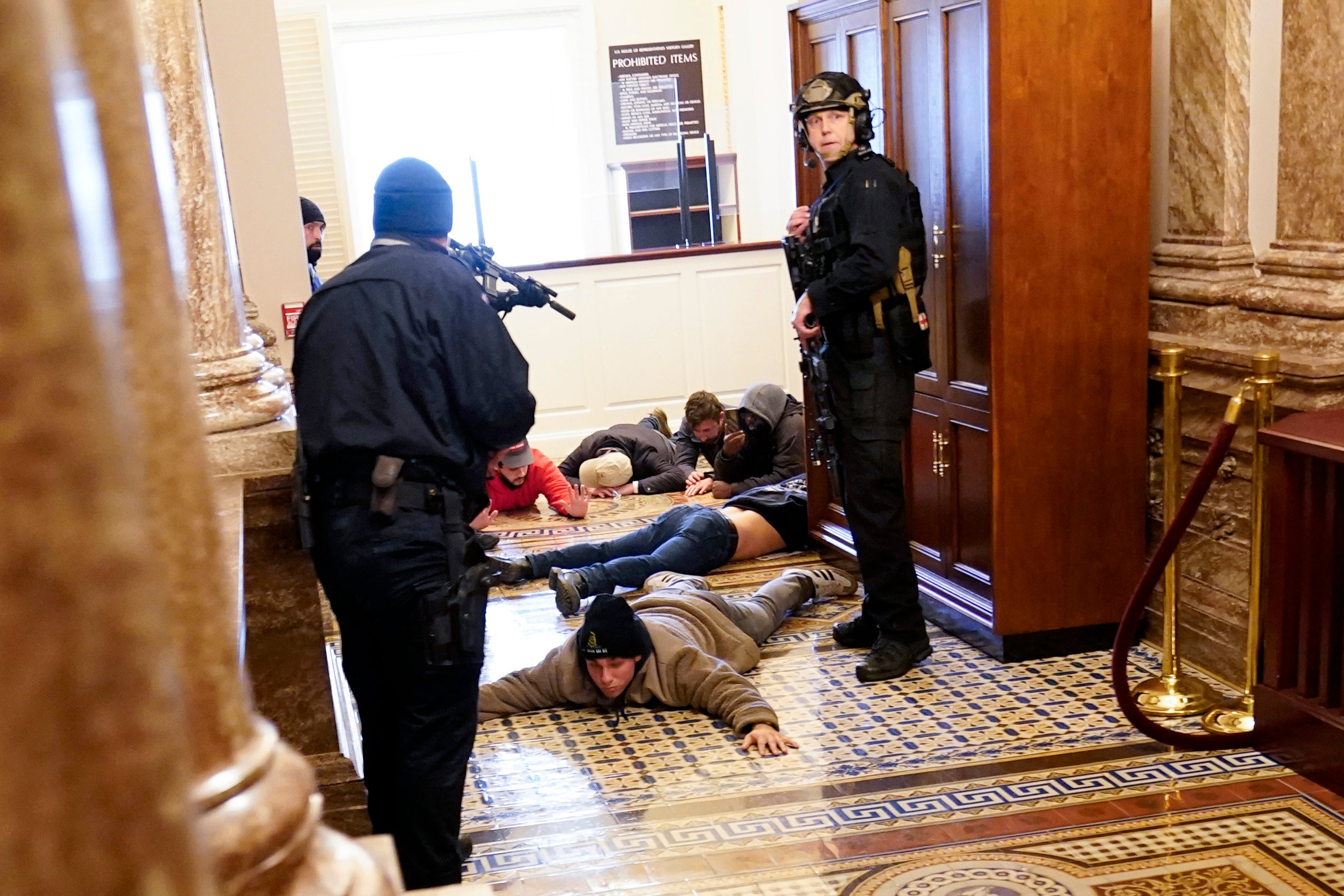Capitol Police chief apologizes for failures in Jan. 6 siege
The interim chief of the Capitol Police has apologized for failing to prepare for what became a violent insurrection despite having warnings that white supremacists and far-right groups would target Congress

Your support helps us to tell the story
From reproductive rights to climate change to Big Tech, The Independent is on the ground when the story is developing. Whether it's investigating the financials of Elon Musk's pro-Trump PAC or producing our latest documentary, 'The A Word', which shines a light on the American women fighting for reproductive rights, we know how important it is to parse out the facts from the messaging.
At such a critical moment in US history, we need reporters on the ground. Your donation allows us to keep sending journalists to speak to both sides of the story.
The Independent is trusted by Americans across the entire political spectrum. And unlike many other quality news outlets, we choose not to lock Americans out of our reporting and analysis with paywalls. We believe quality journalism should be available to everyone, paid for by those who can afford it.
Your support makes all the difference.The interim chief of the Capitol Police apologized Tuesday for failing to prepare for what became a violent insurrection despite having warnings that white supremacists and far-right groups would target Congress
Yogananda Pittman, in prepared testimony before Congress, said that the Capitol Police “failed to meet its own high standards as well as yours." She listed several missteps: not having enough manpower or supplies on hand, not following through with a lockdown order she issued during the siege and not having a sufficient communications plan for a crisis.
“We knew that militia groups and white supremacists organizations would be attending,” Pittman wrote. “We also knew that some of these participants were intending to bring firearms and other weapons to the event. We knew that there was a strong potential for violence and that Congress was the target.”
Her admissions come as U.S. law enforcement investigate a number of threats aimed at members of Congress and as the second impeachment trial of former President Donald Trump gets underway. A law enforcement official told The Associated Press that authorities have detected ominous chatter about killing legislators or attacking them outside the Capitol.
Trump supporters tore down fences and broke through doors and windows after an event in which the now-former president called on them to “fight” and “stop the steal.” Inside the building, Congress was certifying the victory of President Joe Biden. Five people died, including Capitol Police Officer Brian Sicknick, who was hit in the head with a fire extinguisher. A sixth person, another Capitol Police officer, later died by suicide.
The day after the riot, then-Capitol Police Chief Steven Sund said that his force “had a robust plan established to address anticipated First Amendment activities.” Sund has since resigned, as have the sergeants-at-arms for the House and Senate.
Officers who have spoken to the AP described being overrun by insurrectionists who in many cases were more armed than they were. The officers said they were given next to no plan beforehand or communication during the riot.
There are conflicting accounts of why the Capitol Police did not have more backup. In her testimony, Pittman said Sund asked the Capitol Police Board, which oversees the department, to declare a state of emergency and allow him to request National Guard support, but the board declined. The Defense Department has said it asked the Capitol Police if it needed the Guard, but the request was denied.
Several law enforcement and congressional reviews are underway.
Both Pittman and Timothy Blodgett, the acting House sergeant-at-arms, told Congress on Tuesday that they need stronger communications and more fortifications around the Capitol building. Blodgett called on members of Congress to prepare for future emergencies and offered training for any offices that requested it.
“You want people to have some level of access to the government,” said Rep. Tim Ryan, D-Ohio. But he noted that it's also important that they feel protected and positioned to respond quickly to anything that might happen.
___
Associated Press writer Michael Balsamo in Washington contributed to this report.